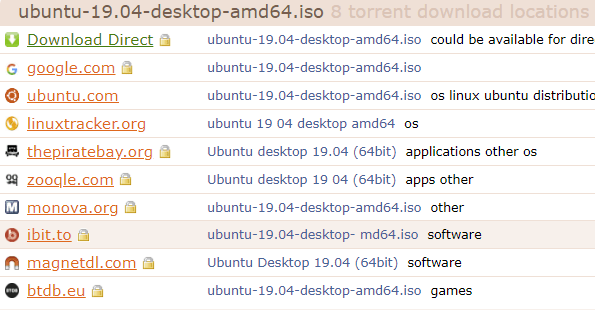[Most Recent Entries] [Calendar View]
Sunday, September 8th, 2019
| Time | Event |
| 10:11a | The Solution to Music Piracy in Nigeria is No Joke – Or is It?  Even when one has visited many countries around the world, subtleties of cultural differences can be difficult to grasp. What’s funny or makes sense in one country may draw a blank expression in another, which is why a recent set of stories from Nigeria catch the eye. Music industry group IFPI describes Africa as a whole as an emerging opportunity for business, with digital music services sometimes available alongside mobile phone services. Nevertheless, the physical music market, while dwindling, is still going strong – even if piracy remains a big problem. Enter stage left popular musician and comedian Koffi Idowu, who in sits on the board of the Copyright Society of Nigeria. COSON, as it’s known locally, describes itself as Africa’s fastest-growing copyright collective management organization. While ‘Koffi’ is known locally for his comedy, one might think that joking about piracy would be off-limits, considering his position. However, it’s almost impossible for outsiders to determine whether his recent comments are serious or not. Content leaks from manufacturing and distribution processes can sometimes be tackled using watermarking, for example. However, Koffi is publicly advocating the use of a “modern technology” that actually debuted in the 1970s. “Modern trends need to be applied by the right commissions to successfully combat piracy. People in the creative industry need to start barcoding their works,” he said, according to several local sources. “We also need to start tracing these works from the sources where they were being stolen. We cannot monitor them physically but with technology, we can go a long way,” he added. Without being disrespectful to Nigeria’s position as an emerging nation (and, of course, presuming this isn’t a joke that doesn’t translate across borders), it seems bizarre to think that a barcode could prevent music piracy in any way. One CD out, and it gets copied, barcode or not. But then Koffi advocates getting the military involved to deal with the problem. “When we discover warehouses where piracy is being carried out, arrests and sanctions can only be done by the appropriate officials,” he said. It all sounds real enough, but it’s only when one takes a look at articles on Nigeria’s market published in the West that one gets a grip on just how different things are in the African nation. Not just different, but also bizarre. An article in Billboard published in April describes how local digital music streaming service uduX is making progress in Nigeria. We’re all used to installing apps for music and banking, for example, but what if they were the same thing? “Through GTBank’s Habari app, a platform for shopping and lifestyle content, uduX, whose name derives from a musical instrument played in Nigeria called udu, will gain access to a community of 16.8 million users,” the Billboard piece reads. “Since consumers have already entered their banking information, they can subscribe to the streaming platform in a few clicks.” Now while this makes sense on a basic level, the privacy-conscious among us might be thinking “what could possibly go wrong?” As it turns out, those fears appear to be not only well-founded but considered a feature in Nigeria. That’s according to Chidi Okeke, the CEO of Groove Platforms, the company behind uduX. “I want to get people to pay for my service and for that, I just needed to be close to where the money is,” Okeke said. And thanks to the partnership with the bank, the streaming service can get information on the bank’s customers, including their ages and location, and perhaps a whole lot more. “We know how they spend their money, so it’s easier for us to target people,” said Okeke. That doesn’t sound like a joke. But the barcodes and military are up for debate, potentially. Or maybe not. Source: TF, for the latest info on copyright, file-sharing, torrent sites and more. We also have VPN reviews, discounts, offers and coupons. |
| 8:37p | Google Search Apparently Indexes Over 80 Million Torrent Hashes  Like every general search engine on the web, Google indexes every page it can find. That’s what it’s for, after all. Torrent meta-search engines do things quite differently. These sites are only interested in torrent links found on external sites. This includes Torrentz2, which is without a doubt the most popular torrent meta-search engine on the Internet. The site took over from the original Torrentz site, which after it surprisingly closed its doors during the summer of 2016. Over the past three years, the site has rolled out some updates, most of which have gone unnoticed. However, recently our interest was piqued by a rather unusual addition to the Torrent2’s indexed sites. Starting a few weeks ago, Torrentz3 began listing “Google” as a ‘source’ in its search results. Not somewhere down the bottom, but as the top result for every piece of content. Here’s what shows up on the “Ubuntu desktop 19.04” page.  The Google link on top leads to a Google search for the associated torrent hash, which finds dozens of pages where the Ubuntu torrent is available as well. This works the same for all other results. Usually, Google returns plenty of options, including several sites that Torrentz2 doesn’t search. What’s also interesting to note is the number of hashes Google has listed in its search engine. According to Torrentz2, Google is currently able to find 82,085,976 unique torrent hashes.  While that’s already an impressive amount, the number of torrent pages indexed by Google is actually much higher, as it often has dozens of pages for each torrent hash. After all, the same torrents generally appear on several torrent sites. Google, like any other search engine, has always indexed torrent sites. In fact, it even has a dedicated filetype:torrent command. This allows users to search for .torrent files directly on Google, but it isn’t as effective as the hash-based method. Also, in recent years the site took several measures to make copyright-infringing content harder to find. Nowadays it can be quite a challenge to find something in Google by simply assing “torrent” to a search query. With Torrentz2 + Google, however, that doesn’t appear to be an issue. Source: TF, for the latest info on copyright, file-sharing, torrent sites and more. We also have VPN reviews, discounts, offers and coupons. |
| << Previous Day |
2019/09/08 [Calendar] |
Next Day >> |